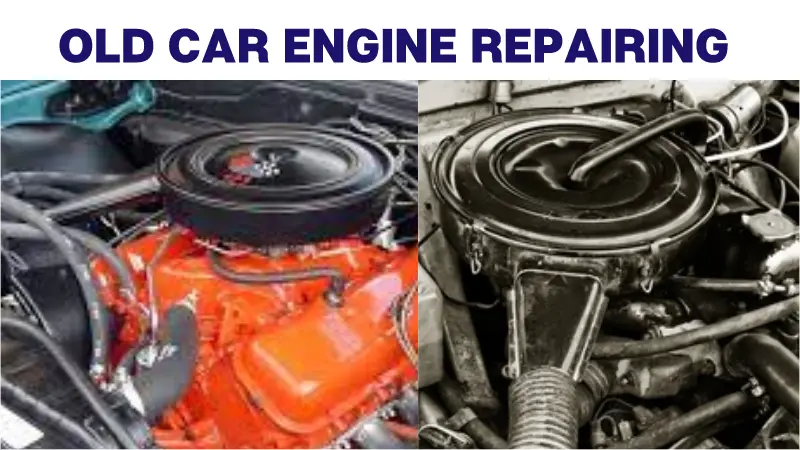How Often Should I Change My Diesel Truck Oil?

When it comes to the recommended oil change schedule for a diesel truck, the number of miles matters, but so does the particular usage of your vehicle. If you’re frequently towing heavy loads, you might need to change the oil more frequently, possibly every 5,000 to 7,000 miles or every six months, whichever comes first.
Consulting your owner’s manual or a mechanic familiar with your vehicle is the best answer to this question. Constant lubrication is vital for engine parts, especially in the case of older trucks, where maintenance becomes even more critical.
Factors That Affect Oil Change Frequency
Terrain and Driving Habits
Driving habits and terrain heavily influence how often a diesel truck’s oil should be changed. If you frequently haul heavy loads or tow a trailer, especially in rougher terrain, your engine is subjected to more stress, causing oil to degrade faster. Similarly, constant stop-and-go town driving or shorter trips can lead to quicker oil contamination compared to consistent highway speeds or long-distance cruising. Personally, navigating through diverse landscapes has taught me the significance of adjusting oil change intervals based on driving conditions.
Engine Temperature and Oil Type
Engine temperatures also play a pivotal role. In colder climates, where engines take longer to warm up, moisture accumulation and gunk formation are more prevalent, necessitating more frequent oil changes. The type of oil used is equally crucial. While synthetic oil and full synthetic oil offer superior performance and longevity, they may still require more frequent changes under severe conditions. Synthetic blends, on the other hand, strike a balance between cost and performance, ideal for moderate driving conditions.
Duration and Mileage
Determining oil change frequency isn’t just about hitting a certain mileage mark. It’s about considering both mileage and duration. For instance, reaching the 5,000-mile mark might prompt an oil change, but if those miles were accumulated over a short period with intense driving, the oil might need changing sooner. Conversely, reaching the 7,000-mile mark under milder driving conditions might still warrant a change due to extended intervals. It’s essential to assess both mileage and duration to maintain optimal engine health. Through my experiences, I’ve learned to prioritize regular maintenance to ensure my truck runs smoothly, regardless of the miles or terrain it tackles.
Engine oil type
When it comes to maintaining a diesel vehicle, selecting the appropriate engine oil type is crucial for optimal performance and longevity.
Full Synthetic Oil
Full synthetic oil is renowned for its exceptional properties, making it an ideal choice for modern diesel engines. Its advanced formula provides superior protection and performance in various conditions, ensuring smooth operation and longevity for your vehicle. While it may come at a higher price point, the benefits it offers in terms of engine protection and performance justify the investment.
Synthetic Blend
Synthetic blend oils offer a balanced solution for diesel vehicles, combining some of the benefits of full synthetic oil with the affordability of conventional oil. These blends provide adequate protection and performance for many applications, making them a popular choice among vehicle owners looking for a cost-effective option without compromising too much on quality.
Conventional Oil
Conventional oil, although not as advanced as synthetic variants, still serves as a reliable option for diesel engines. While it may require more frequent changes compared to synthetic oils, it remains a viable choice, especially for older vehicles or those operating in less demanding conditions.
Personal experience and expertise emphasize the importance of regular oil change services, regardless of the type of oil chosen. Proper lubrication at recommended intervals based on distance and speed is essential for ensuring the longevity and performance of your diesel engine.
Diesel Engine Oil Process
Fresh Oil Frequency
How often should you change oil in a diesel truck? The frequency depends on various factors. Typically, diesel engines require oil changes at regular intervals to maintain optimal performance. As a seasoned technician, I recommend adhering to manufacturer guidelines, but consider your driving habits, environmental conditions, and mileage. Diesel engines endure higher temperatures and greater stress, necessitating more frequent oil changes compared to gasoline engines. Regular maintenance is key to sustaining your engine’s longevity and performance.
Cost Comparison
When it comes to cost, diesel engine oil changes may appear pricier than their gasoline counterparts, typically ranging between $50 to $70. However, consider the difference in performance and durability. Diesel engines use a different type of oil due to their unique requirements, which affects the overall cost. Though the initial outlay may be slightly higher, the long-term benefits outweigh the expense. Investing in regular oil changes is a small price to pay for extended engine life and reliable performance.
Basic Maintenance Tasks
Beyond oil changes, ensure you perform basic courtesy maintenance tasks. Check your tires, air, and fluid levels regularly. Remember to rotate your tires for even wear and extend their lifespan. Maintaining clean windshields and windows ensures visibility and safety on the road. By keeping up with these routine tasks, you can avoid costly repairs and enjoy a smoother ride.
Expert Advice
As a mechanic with years of experience, I’ve seen the impact of neglected maintenance. Stay proactive and prioritize your vehicle’s health. A little care goes a long way in keeping your diesel truck running smoothly. Remember, when in doubt, consult a professional. Your truck deserves the best, and proper maintenance is key to unlocking its full potential.
Risk Of Changing Your Own Diesel Engine Oil
Attempting the Process Yourself
If you try to handle the oil change for your diesel engine on your own, it may seem simple at first glance. Here, it’s crucial to remember that changing your own oil comes with its risks. After all, a technician is trained to tackle the bigger problems that could arise. Above the basic concerns, there are a couple of reasons why you need to trust a professional. Here, it’s not just about the money you may save, but causing problems due to a lack of expertise can end up costing you far more in the end.
Trust the Technician
If you’re tempted to handle the oil change yourself, you may find yourself up against more complications than anticipated. Here, you need to trust in the experience and skill of a qualified technician. Remember, it’s not just about the simple process, but the potential problems that may arise. After all, changing the oil in a diesel engine is more complex than for a regular car.
Convenience
Convenience is vital when changing oil in a diesel truck. While professional services seem easy, they can be costly. DIY options, with research and the right materials, save time and money. Personal experience shows that dedicating time in a climate-controlled garage, regardless of the season, is efficient. Mastering the process from purchase to disposal is satisfying and ensures a smoothly running vehicle.
Risk
The risk associated with oil changes can be significant, especially for newcomers. While rookies may make mistakes during their first attempts, relying on professional technicians reduces the likelihood of errors and subsequent repairs. Drawing from personal expertise, I’ve witnessed the consequences of DIY attempts, underscoring the importance of trusting experienced technicians for confidence and peace of mind.
The environment can affect the oil change process

The environment plays a crucial role in determining how often you should change the oil in your diesel truck.
Driving Conditions:
Whether you’re navigating slick roads or tackling rough terrain, the strain on your engine varies. Frequent use on gravel or concrete can accelerate wear and tear, necessitating more frequent oil changes to keep your engine well-lubricated and protected.
Weather Conditions:
In colder climates, the engine operates at lower temperatures, causing the oil to thicken and flow less efficiently. Conversely, in warmer temperatures, the oil becomes thinner, potentially reducing its effectiveness in lubricating the engine.
Moisture and Contaminants:
Rain, shine, or salty roads can introduce moisture and contaminants into the engine, affecting the oil’s quality and performance. Regular inspections and changes are essential to ensure optimal engine function.
DIESEL OIL CHANGE COST
Navigating the realm of oil change costs for diesel trucks can be daunting, but there are ways to mitigate expenses without compromising on quality. Opting for petroleum products of reputable brands ensures optimal engine protection, albeit at a higher upfront cost. However, these premium oils often translate to long-term savings by minimizing engine wear and tear.
Moreover, keep an eye out for coupons or affinity discounts offered by auto shops, which can significantly reduce the overall cost of oil changes. As a seasoned truck owner, I’ve learned that prioritizing quality over cost ultimately pays off in terms of performance and reliability.
Change The Oil, Save The Truck
In my years of expertise as a diesel truck owner, I’ve learned that oil changes are more than just routine maintenance; they’re vital for the longevity of your engine. Technicians often recommend changing the oil in a diesel truck every 5,000 to 7,500 miles, depending on your usage and driving situation. Ignoring this simple task can lead to catastrophic damage that can sideline your truck and drain your wallet.
From my own experience on the road, I’ve learned the hard way that neglecting oil changes can spell disaster. That’s why I recommend staying vigilant and adhering to a strict oil change schedule. It’s a small investment in time and money that can save you from major headaches down the line.
When it comes to oil changes, acting quickly is key. Don’t wait until your engine starts showing signs of trouble. Contact your mechanic and schedule an appointment as soon as you’re due for a change. It’s a simple step that can keep your truck running smoothly for years to come.
Conclusion
When it comes to the recommended oil change schedule for a diesel truck, the number of miles matters, but so does the particular usage of your vehicle. If you’re frequently towing heavy loads, you might need to change the oil more frequently, possibly every 5,000 to 7,000 miles or every six months, whichever comes first. Consulting your owner’s manual or a mechanic familiar with your vehicle is the best answer to this question.
Constant lubrication is vital for engine parts, especially in the case of older trucks, where maintenance becomes even more critical. From personal experience, factors such as driving habits, terrain, and engine temperature heavily influence the frequency of oil changes. It’s not just about hitting a mileage mark; it’s about assessing both mileage and duration to ensure optimal engine health.
Choosing the right engine oil type is equally crucial, with options ranging from full synthetic to conventional, each offering varying levels of protection and performance. Regardless of the oil chosen, prioritizing regular maintenance is key to ensuring your diesel truck runs smoothly for years to come.
FAQs
How often should you change oil on a diesel truck?
However, diesel engines are similar to other regular car engines in that the rule of thumb is that you should be replacing the oil roughly every 3,000 miles. This is the case if you’re using standard oil, and this mileage bumps up to every 5,000 to 6,000 miles if you’re using synthetic oil.
How many miles can a diesel truck go between oil changes?
In Summary. Light duty commercial vehicles should have their oil changed every 5,000 miles or so. Heavy duty diesel trucks should have their oil changed every 25,000 miles at least. Changing your fleet’s oil every 16,000 miles can make sure that there are no performance dips over time.
What happens if you don’t change the oil in a diesel truck?
Complete Engine Failure,If you go long enough without an oil change, it could cost you a car. Once the motor oil becomes sludge, it no longer removes heat from the engine. This can lead to a complete engine shutdown that will require a brand new engine or a new ride to fix.
Can too much oil damage a diesel engine?
As with any engine, too much will cause the crank to beat air into it, possibly causing oil starvation in the main and big-end bearings. Specifically for a diesel, however, excess oil in the crankcase can cause it to be forced up past the piston rings and into the combustion chamber.
What’s the best oil for diesel engines?
Diesel engines generally require oils with higher viscosity, often denoted by numbers such as 15W-40 or 10W-30. The first number (15W or 10W) indicates how the oil performs in cold temperatures, while the second number (40 or 30) indicates its performance at high temperatures.
How many km does a diesel engine oil last?
Most auto manufacturers recommend oil changes once each year or 20,000km on petrol engines. Diesel engines and turbo charged petrol engines should be changed every 6 months or 10,000 km. Changing the oil once a year (20,000 km) is OK for vehicles driven in ideal circumstances.











